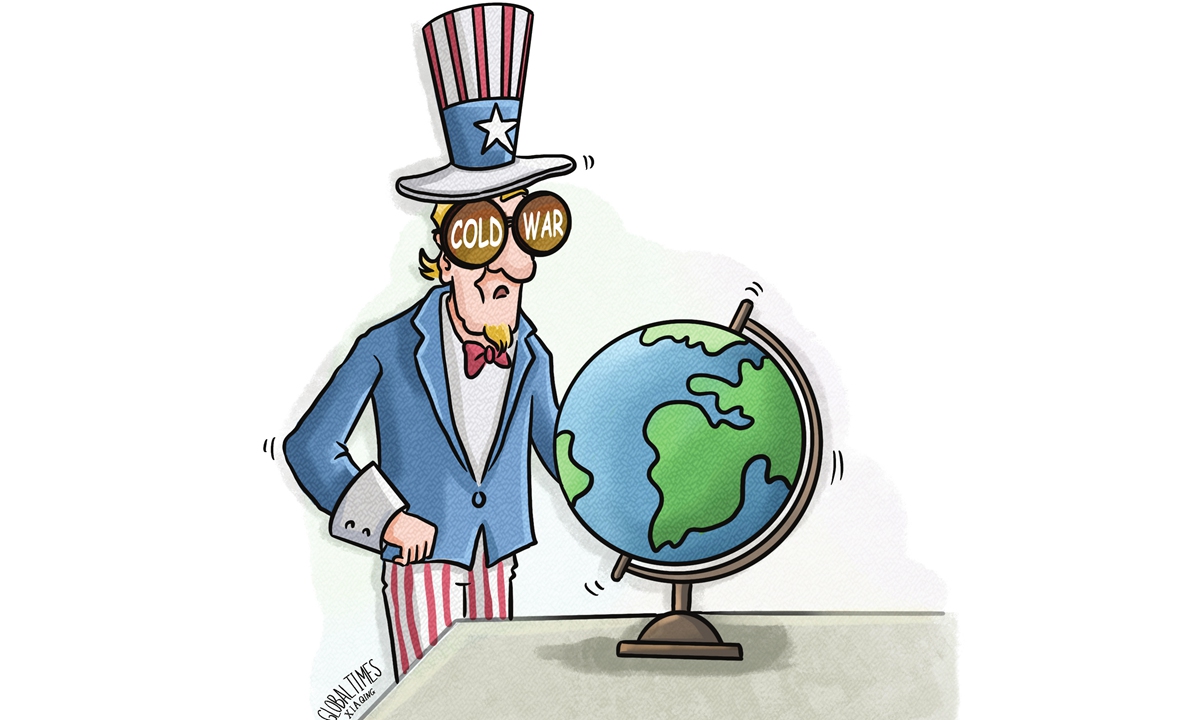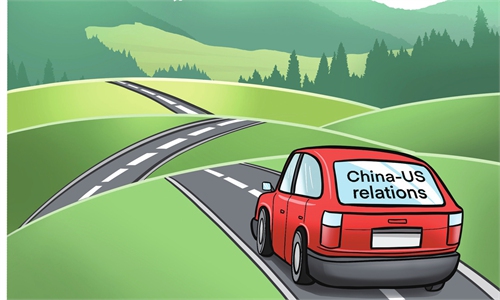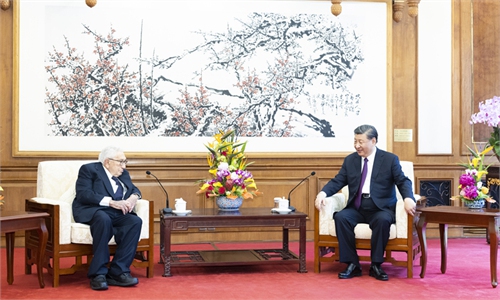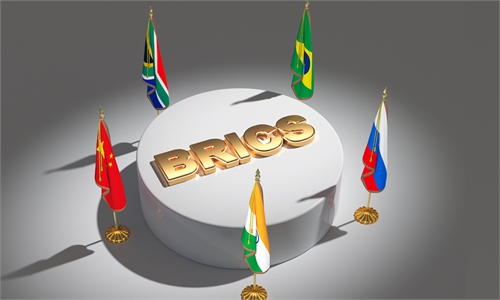Returning to Cold War era's path of binary, friend-or-foe mentality a dangerous choice for US

Illustration: Xia Qing/GT
When Joe Biden became president in January 2021, some liberals and others in the US were concerned about the antagonistic posture adopted by the US toward China, especially since Barack Obama announced the "Pivot to Asia" in 2011, and Donald Trump launched a "trade war" with China in 2018. They hoped that Biden would move toward a more positive attitude in foreign policy, engaging with China in joint efforts to find common ground in dealing with major global issues like climate change and ending poverty in developing countries. But instead, the Biden administration has only deepened the campaigns of demonization and provocation directed against China. Biden presents himself as a classic American liberal, but a better way to understand American foreign policy in the Biden era is as a revival of the ideology and actions of the Cold War.
From the end of World War II until the collapse of the Soviet Union in 1991, the US made its anti-Soviet, anti-communist drive the fundamental determinant of American actions in the world. American policymakers and politicians saw the world as a black-and-white moral environment. The US was good, the Soviets and their allies were bad.
American policy toward any given country was based on whether that country was open to American capital, or if it was seeking to develop itself on its own terms, perhaps with aid from the USSR. If a country seemed to be becoming friendly with the Soviets, the US would first try to lure them back with increased aid or other inducements. If that did not work, harsher approaches would be adopted, including overthrowing governments which were deemed unacceptable to American "interests."
US relentless campaign of aggression against the Soviet Union and any countries allied to or friendly with it eventually led to the collapse of the USSR, the end of the socialist states of Eastern Europe, and a general triumphalism within American political elites, who saw themselves as the only remaining superpower, dominating the world in the interest of profits for American corporations.
The end of the Cold War, however, coincided to some extent with new developments in other parts of the world. Most importantly, China had advanced its program of reform and opening to the outside and engaged with the global capitalist system dominated by the US in its efforts to acquire capital, technologies and other information and knowledge as part of its effort to develop its productive economy and improve the lives of its people.
In the context of the end of the Cold War, American elites convinced themselves that China would sooner or later undergo a political transition and become a compliant, subordinate component of global capitalism. Through the 1990s and the early years of this century, the US anticipated some kind of "color revolution" or other change in the political system in China.
But this was not to be. China remained dedicated to its socialist project, raising the material quality of life for its people, lifting hundreds of millions out of poverty, expanding healthcare and education and working to address environmental issues like climate change and global warming. As it became clear that China was staying true to its own path, American politicians like Obama and Hilary Clinton shifted from a posture of engagement to one of a new Cold War, an effort to slow or derail China's development and block China from re-emerging as a significant participant in world affairs.
This is the reality of American policy toward China today. American elites, led by old white men, continue to see the world in black-and-white, a world in which countries are either subordinate to American domination or enemies to be demonized, isolated and antagonized in various ways. Figures like Joe Biden, Donald Trump, Mitch McConnell or Chuck Schumer are all old Cold War Warriors, embedded in a zero-sum worldview that seeks to perpetuate American elites' power and privileges in a rapidly changing world where the US no longer dominates. Their ideological blinders drive them to reckless acts of provocation and campaigns of demonization which risk the outbreak of war and the devastation of the global economy.
The world today faces many serious challenges. The existential crises of the environment demand immediate, coordinated action by all countries and peoples around the world. The deep inequalities in the global distribution of wealth and the legacies of Western colonialism and imperialism desperately need to be ended. A multi-centric world economy is emerging and should be encouraged and facilitated in the interest of improving the lives of billions of people, and not seen as something undermining the American-dominated club of wealthy nations running the planet in their own interest.
The Cold War was a disastrous period for many people in many countries. Returning to the path of binary, friend-or-foe mentality is a dangerous choice by the US, by the Biden administration and by politicians across the mainstream spectrum of Democrats and Republicans. It is bad for the US, bad for China and bad for the world.
The author is a professor of East Asian and global history at New Mexico State University. opinion@globaltimes.com.cn



